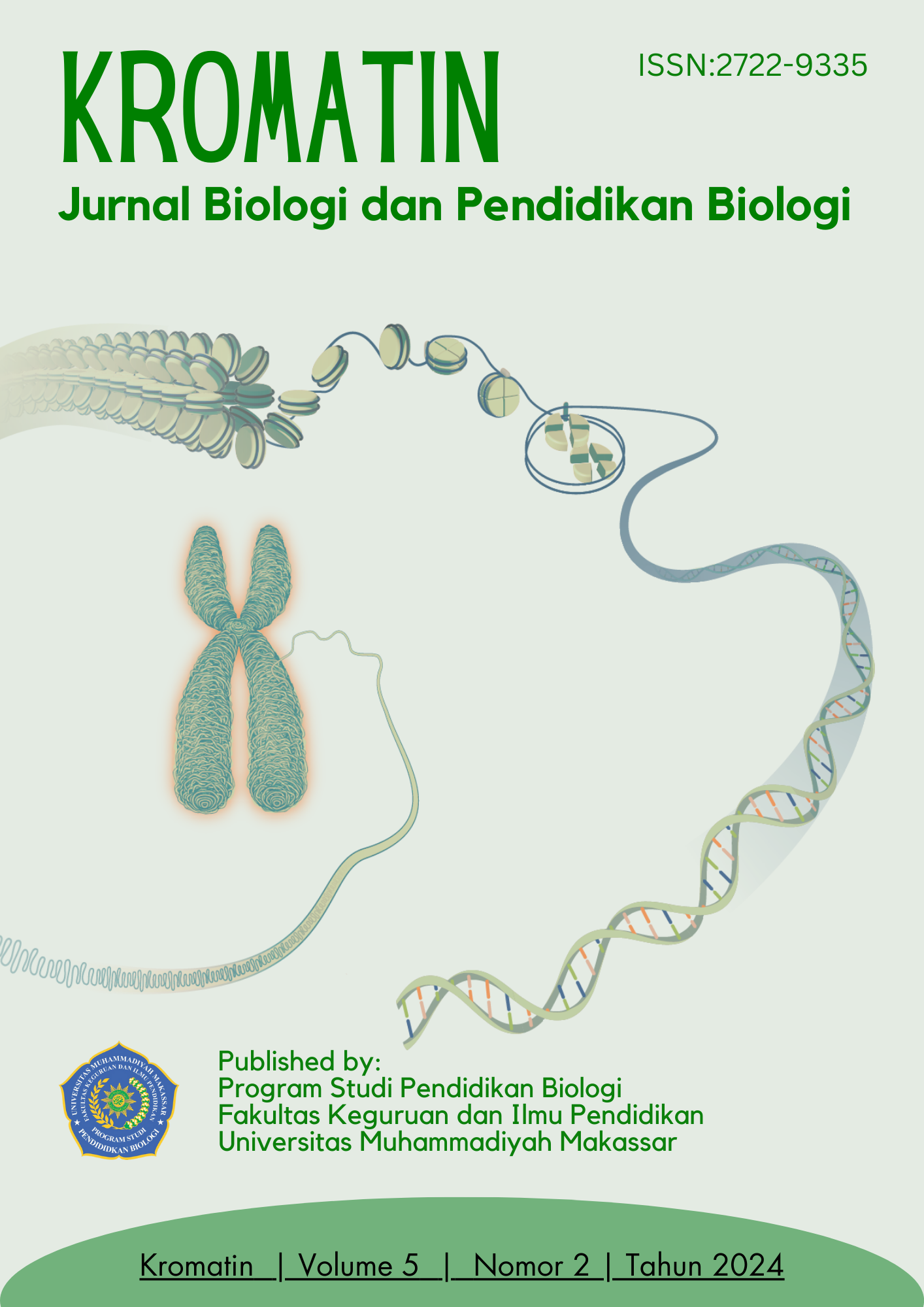Pengaruh model pembelajaran think-talk-write berbantuan LKS terhadap hasil belajar biologi konsep virus pada siswa kelas X SMA
Abstract
Abstrak Penelitian ini merupakan penelitian eksperimen quasi yang bertujuan untuk:(1) mengetahui bagai mana hasil belajar siswa yang di ajar menggunakan model Think-Talk-Write pada materi virus kelas X di SMA Negeri 2 Gowa (2) mengetahui adakan pengaruh model Think-Talk-Write terhadap hasil belajar siswa materi virus kelas X di SMA Negeri 2 Gowa. Populasi dalam penelitian ini adalah seluruh siswa kelas X MIPA SMA Negeri 2 Gowa dan sampel terdiri dari dua kelas yakni kelas eksperimen (X MIPA 1) yang diberi perlakuan dengan model pembelajaran think-talk-write dan kelas kontrol (X MIPA 2) yang tidak diberi perlakuan, menggunakan random sampling dengan pertimbangan bahwa kemampuan siswa di asumsikan homogen. Data yang dikumpulkan berdasarkan dari hasil belajar siswa pre-test dan post-test yang dimana data diolah dengan dua cara yaitu dengan analisis deskriptif dan analisis inferensial, hasil dari penelitian menunjukkan bahwa: (1) hasil belajar siswa yang diberi perlakuan (treatment) dengan menerapkan model pembelajaran think-talk-write lebih baik, hal ini bisa di lihat dari presentase jumlah siswa yang di kategorikan tuntas pada kelas eksperimen lebih tinggi dengan nilai rata-rata 86,15 sedangkan pada kelas control nilai rata-rata 67,25 . (2) terdapat pengaruh penerapan model think-talk-write terhadap hasil belajar siswa kelas X di SMA Negeri 2 Gowa, hal ini bias dilihat dari hasil uji hipotesis melalui Independen Sampel T-Test dengan nilai p=0,000< a = 0,05 dengan demikian Model Think-Talk-Write berpengaruh terhadap hasil belajar siswa Kelas X MIPA SMAN 2 Gowa.
Downloads
Published
Issue
Section
License
Authors who publish with this journal agree to the following terms:
1. Authors retain copyright and grant the journal right of first publication with the work simultaneously licensed under a Creative Commons Attribution 4.0 Internasional License that allows others to share the work with an acknowledgement of the work's authorship and initial publication in this journal.
2. Authors are able to enter into separate, additional contractual arrangements for the non-exclusive distribution of the journal's published version of the work (e.g., post it to an institutional repository or publish it in a book), with an acknowledgement of its initial publication in this journal.
3. Authors are permitted and encouraged to post their work online (e.g., in institutional repositories or on their website) prior to and during the submission process, as it can lead to productive exchanges, as well as earlier and greater citation of published work.
Licence:
Authors are free to:
1. Share: Copy and redistribute the material in any medium or format
2. Adapt: Remix, transform, and build upon the material for any purpose, even commercially.
The licensor cannot revoke these freedoms as long as the authors follow the license terms, which include the following:
1. Attribution: Authors must give appropriate credit, provide a link to the license, and indicate if changes were made. Authors may do so in any reasonable manner, but not in any way that suggests the licensor endorses the authors or authors’ use.
2. No additional restrictions: Authors may not apply legal terms or technological measures that legally restrict others from doing anything the license permits.
This work is licensed under a licensed under a Creative Commons Attribution 4.0 Internasional License/ CC BY 4.0.


